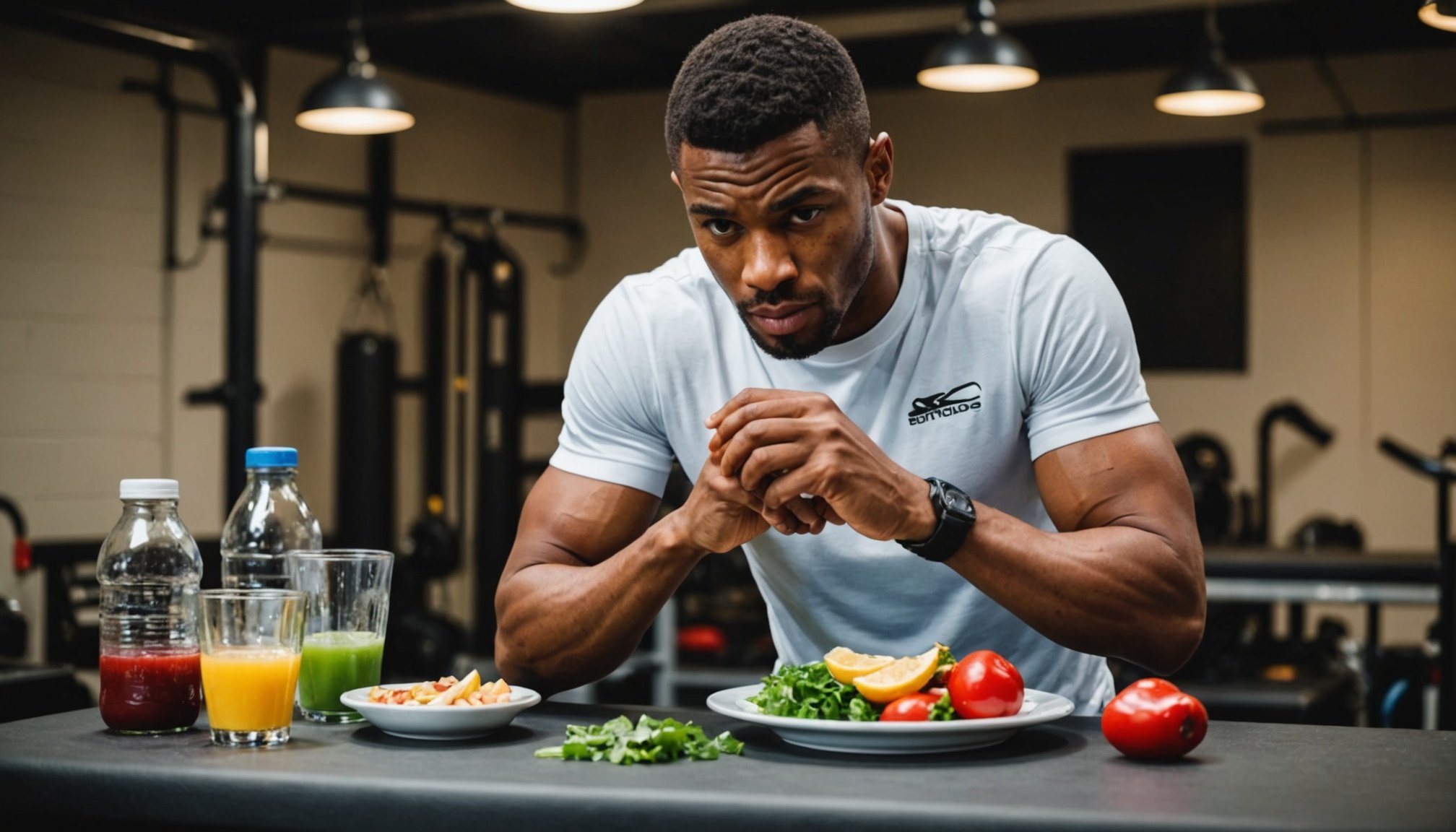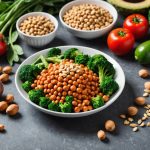Understanding Off-Season Nutrition for Boxers
Navigating off-season nutrition is crucial for boxers aiming to enhance their athletic performance and prepare for upcoming competitions. During the off-season, dietary strategies for boxers shift significantly compared to in-season requirements. This period focuses less on high-intensity fuel and more on recovery, muscle maintenance, and weight management.
When considering off-season nutrition, one might wonder: How does it differ from in-season diets? Off-season nutrition emphasizes nutrient-dense foods that aid in recovery. While in-season diets require higher caloric and carbohydrate intake for energy, off-season nutrition allows for moderate calorie reduction, prioritizing nutrient-rich meals and adequate protein to support muscle repair.
Also to read : Maximize your kickboxing strength: the ultimate resistance band guide for uk fighters
The goals of off-season nutrition include optimal recovery from the past season’s exertions, maintaining muscle mass, and managing weight effectively. For boxers, this means ensuring sufficient intake of proteins, healthy fats, and vitamins to support body repair and immune function. Carbohydrate levels may be moderated, aligning with reduced activity levels, yet still sufficient to fuel training and recovery.
Ultimately, tactical dietary strategies during this time can protect a boxer’s physique from unnecessary gains in body fat. A well-balanced off-season nutrition plan ensures that boxers remain in peak condition, paving the way for successful future performances.
Have you seen this : Maximizing athletic excellence: enhancing joint mobility for combat sports competitors in the uk
Macronutrient Breakdown for Boxers
Understanding macronutrient ratios is crucial for boxers who aim to optimise performance. A balanced diet with specific attention to protein, carbohydrates, and fats can significantly enhance recovery and energy levels.
Role of Protein in Boxer Nutrition
Protein is essential for recovery and muscle maintenance. Boxers typically require a higher protein intake to recuperate from strenuous workouts. On average, 1.6 to 2.2 grams of protein per kilogram of body weight is recommended. High-quality protein sources such as chicken, fish, and plant-based options like lentils are widely available in the UK and are excellent choices for athletes. Consuming protein at strategic intervals is beneficial; ideally, a protein-rich meal or shake should be consumed within 30 minutes post-exercise to maximise muscle repair.
Importance of Carbohydrates
Carbohydrates serve as the primary energy source, especially during the off-season when training is intense. It’s crucial to focus on consuming complex carbohydrates such as oats and quinoa, which provide sustained energy and are full of fibre. Carbohydrate cycling can be a strategic approach, adjusting intake based on training demands to optimise performance.
Healthy Fats and Their Significance
Incorporating healthy fats like those found in avocados and nuts into a boxer’s diet can aid in recovery and support overall health. These fats are beneficial for joint health, which is crucial for training longevity. Consuming healthy fats not only supports recovery but also helps in maintaining balanced hormone levels, ultimately contributing to better performance.
Meal Planning Strategies for Boxers
When it comes to meal planning for boxers, building balanced meals is crucial. Balanced meals provide essential nutrients and energy needed for intense training sessions and recovery. A boxer’s meal should include an appropriate ratio of carbohydrates, proteins, and fats. This helps in maintaining stamina, muscle mass, and overall health. Aim for complex carbohydrates, lean proteins, and healthy fats to sustain energy levels and support muscle repair.
Nutrition timing is another vital aspect. Consuming the right nutrients at the right time can significantly impact performance. For instance, having a carbohydrate-rich snack about 30 minutes before training ensures ample energy. Protein intake post-workout helps in muscle recovery and growth.
Incorporating seasonal UK foods can enhance the nutritional value of meals. Foods in season are often more nutrient-dense and fresher. Seasonal vegetables like kale, root vegetables, and broccoli can be included for their vitamin and mineral content.
For consistency, meal prep can be a boxer’s best ally. Preparing meals in advance ensures adherence to nutrition goals and avoids unhealthy choices. dedicating a day for meal prep can streamline daily decision-making and support consistent dietary habits. Investing time in meal planning, understanding nutrition timing, and making the most of seasonal foods can greatly benefit a boxer’s performance and health.
Hydration Strategies for Off-Season
In the off-season, maintaining proper hydration is crucial for optimal recovery and performance. Keeping a balanced fluid intake ensures that your muscles function efficiently and you remain energetic and ready for the next training session. Adequate electrolyte balance plays a vital role in this process, allowing nutrients to be distributed effectively throughout the body.
Dehydration can hinder these efforts significantly. Recognising signs of dehydration can prevent further complications. Symptoms include a dry mouth, feeling dizzy, dark yellow urine, and fatigue. Monitoring these signs can help you regulate your fluid intake, boosting your overall health during the off-season.
Practical tips for staying hydrated include carrying a water bottle everywhere you go, setting reminders to drink regularly, and incorporating fruits and vegetables with high water content into your diet. Enhancing your hydration with local beverage options, like coconut water or herbal teas, can also be beneficial. These beverages are often rich in electrolytes, supporting your body’s needs effectively. Small yet conscious adjustments to your daily routine can make a significant difference in maintaining an optimum hydration level during the off-season.
Enhancing Recovery Through Nutrition
In the realm of athletic performance, recovery nutrition plays a pivotal role. The effectiveness of post-workout nutrition is often determined by the timing and composition of meals. Consuming post-workout meals within 30 minutes to two hours post-exercise enhances recovery. This is when the body is most receptive to nutrients. Focusing on meals rich in proteins and carbohydrates can significantly aid muscle repair and glycogen replenishment. Examples of ideal post-workout snacks include a protein shake paired with a banana or a chicken and quinoa salad, popular choices among UK boxers.
The Role of Post-Workout Nutrition
For optimal recovery, post-workout snacks or meals should prioritize high-quality protein and a source of carbohydrates. Quick and easy options might include Greek yogurt with honey or wholegrain toast with peanut butter. This balance helps mitigate muscle soreness and accelerates recovery, empowering athletes for their next session.
Incorporating Anti-Inflammatory Foods
Incorporating anti-inflammatory foods is beneficial for reducing post-exercise muscle inflammation. Foods such as turmeric, ginger, and berries are excellent additions, widely available in local UK markets. Strategies for seamlessly integrating these into a regular diet include adding turmeric to soups or smoothies and snacking on a handful of berries. Choosing anti-inflammatory ingredients can bolster recovery efforts and improve overall performance.
Cultural and Seasonal Considerations
Understanding the local food culture is paramount when planning nutrition, especially for athletes like boxers. In the UK, dietary practices are influenced by diverse cultural foods and seasonal eating habits. Recognising how different seasons affect food availability is crucial for creating meals that are nutritionally rich and varied.
Seasonal food availability in the UK offers numerous benefits. For instance, spring brings fresh asparagus and rhubarb, while autumn offers a bounty of root vegetables like parsnips and carrots. Incorporating these into a diet not only supports local agriculture but also ensures meals are fresher and tastier. This is invaluable for athletes aiming for peak performance.
Adapting traditional UK meals can be both practical and enjoyable. By making simple swaps, traditional dishes like shepherd’s pie can be transformed into nutrient-dense options. For example, use sweet potatoes for extra vitamins, and lean meats or plant proteins to enhance muscle recovery.
Embrace cultural foods by incorporating nutrient-rich elements without losing authentic flavours. In doing so, boxers can meet their dietary needs while enjoying a culinary journey through the UK’s rich seasonality and cultural diversity. This approach not only optimises health but also connects athletes with their food heritage in a meaningful way.











